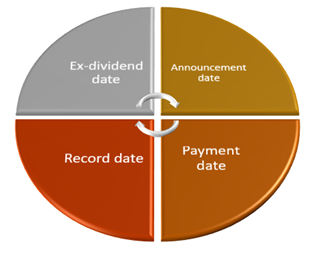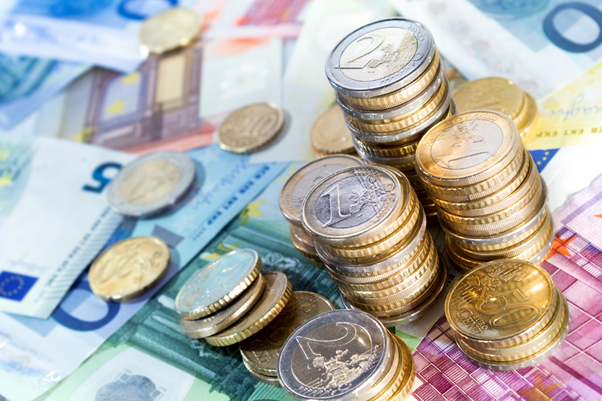Date of Payment
Updated on 2023-08-29T11:57:41.238359Z
What is date of payment?
The date of payment refers to when a corporation pays its dividends. The board of directors merely decides to pay a dividend on the declaration date, but the dividend is not paid on that day. Therefore, it could take as little as a week or as long as a few months from when a dividend is proclaimed to the time it is paid.
Highlights
- The date of payment is the day on which a firm distributes dividends to its investors.
- Typically, the payout date will be a few weeks following the ex-dividend date.
- Analysts and investors may be keeping an eye on the share price on the payment date to determine if the cash disbursement negatively influences the company's perceived financial condition.
Frequently Asked Questions (FAQs)
What are the main dividend distribution dates?

Source: © Ipopba | Megapixl.com
The announcement date, record date, ex-dividend date, and payment date are linked with dividend distribution.
The announcement date
The announcement date is the day on which a corporation declares its decision to issue dividends. A company announces critical facts regarding a decision that will significantly impact the company's shareholders or operations on that date. The day of the announcement would be the first time the public learns anything about the company's operations.
The ex-dividend date
The ex-dividend date, also known as the ex-date, occurs just before the record date and is the first day the stock trades ex-dividend.
The term "ex-dividend" refers to a stock that is trading even without the value of the next dividend payment, implying that a shareholder who purchases the shares on or after the ex-dividend date will not be entitled to collect the declared dividend. Instead, whoever owned the stock the day before the ex-dividend date receives the dividend payout.
The record date
On the record date, the corporation must record all the shareholders who will receive the dividend. Simply put, the record date is the day on which a corporation completes the list of shareholders who are eligible for future dividend distribution.
The corporation issues dividend payments to investors in the form of direct deposits, cheques, and wire transfers shortly after the date of record, typically in a few days.
A company whose stock is extensively traded on the stock market should often expect its shareholder list to change. As a result, the record date is significant when determining dividend eligibility.
On the payment date, persons whose names appear in a firm's shareholder register on the record day are eligible to receive dividends or distributions as stated by the company.
The payment date
A date of payment, also known as payment, payable, or pay date, is the day on which a proclaimed stock dividend is scheduled to be paid to eligible investors in the form of a cheque or electronic payment. Even though the dividend payment has not yet been credited to shareholders, the stock price may decline on the payment date to indicate the dividend payment.
To recap the four key dates in the dividend distribution process:
- The announcement date is the day on when the firm's board of directors declares the dividend that will be paid to qualified shareholders.
- A new stock buyer is not entitled to a dividend on or after the ex-dividend date, one business day before the record date.
- The record date is when the firm lists the records to determine who the firm's shareholders are, and a shareholder must be listed on that day to be eligible for a dividend.
- The corporation mails the dividend to all record holders on the payment date, which could be a week or more after the record date.

Source: Copyright © 2021 Kalkine Media
What role does the date of payment play in the distribution of dividends?
The dividend may be paid up to one month after the ex-dividend date has passed. When the payment due date arrives, the corporation will pay the stockholder's broker rather than the shareholder directly. The dividend will subsequently be deposited to the appropriate shareholder's account or, if specified, reinvested.
On the payment date for dividends, there may be fluctuations in a share price, which shareholders may use to indicate how the market values the asset. In addition, as the payment date gets closer, other investors who didn't even qualify for the dividend may sell or buy shares. As a result, even if a dividend is paid, the stock price may remain inflated.

Source: © Rfischia | Megapixl.com
What is an example of a payment date?
Assume that firm ABC has announced that it would pay a dividend to its eligible shareholders. As a result, the company's ex-dividend date is 10 December — one day before the 11 December record date. Accordingly, the date for payment is 5 January 2021.
In addition, on 5 January 2021, all investors who purchased or owned shares before the ex-dividend date of 10 December will be paid a dividend.